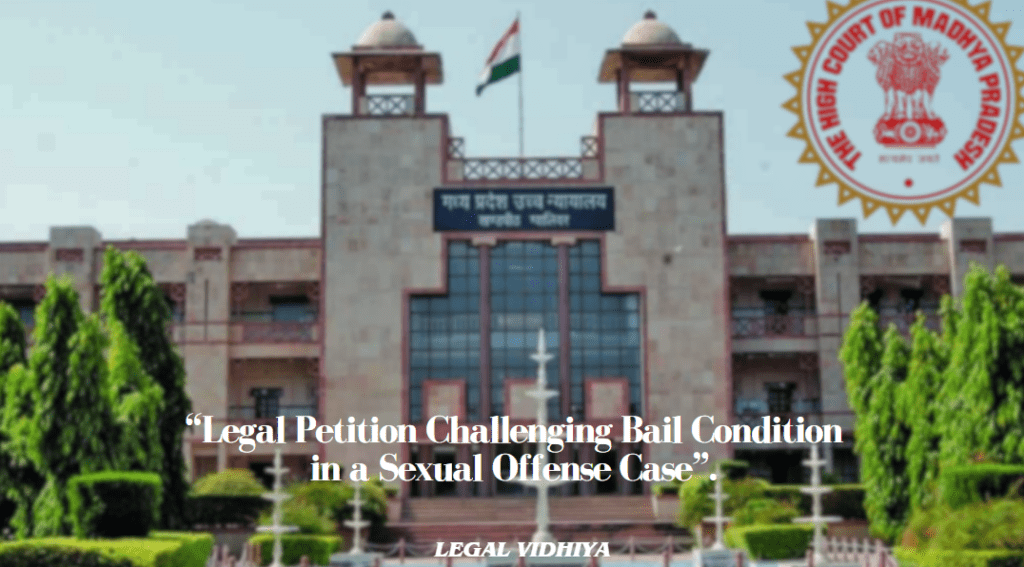
The petitioner challenges a bail condition imposed on the accused by the Madhya Pradesh High Court., arguing that it defeats the purpose of granting bail and raises questions about its appropriateness in a case involving alleged sexual offenses.
The key questions of law raised include whether it is suitable for a court to impose conditions facilitating contact between the accused and the complainant in a bail case. The petitioner questions whether such conditions further victimize the complainant and if they align with principles governing criminal justice. The petitioner also argues that the High Court should have exercised circumspection and sensitivity in dealing with a case involving a sexual offense against a woman.
The grounds for filing the petition include claims that the High Court erred by imposing a condition that allows contact between the alleged perpetrator and the victim. The petitioner emphasizes the difficulty faced by survivors in pursuing criminal cases, highlighting the underreporting of sexual violence and the secondary trauma associated with the legal process. Reference is made to a previous court judgment deprecating compromise in sexual offense cases.
The petitioner asserts that the High Court’s specific condition for the accused to visit the complainant’s house with a Rakhi thread, sweets, and monetary offerings is inappropriate and results in further victimization. The petitioner argues that such conditions trivialize the trauma suffered by the complainant and contradict the basis of the prosecution case, which involves wrongful entry into the victim’s property.
Furthermore, the petition expresses concern about the impact of the case on the broader legal landscape, arguing that it sets a problematic precedent in cases involving sexual offenses against women. The petitioner seeks interim relief, emphasizing the merits of the case and the potential miscarriage of justice if the bail condition stands.
In summary, the petitioner is challenging a bail condition, contending that it is inappropriate and goes against the principles of justice, especially in cases of sexual offenses. The document outlines legal arguments, precedents, and concerns, seeking Special Leave to Appeal and interim relief from the court.
In conclusion, the legal petition challenges a bail condition imposed by the Madhya Pradesh High Court, arguing that it is inappropriate and contradicts principles of justice, especially in cases involving sexual offenses. The petitioner questions the appropriateness of allowing contact between the accused and the complainant as a bail condition and emphasizes the potential victimization of the survivor.
The grounds for filing the petition include references to previous court judgments deprecating compromise in sexual offense cases and highlighting the difficulties faced by survivors in pursuing criminal cases. The petitioner expresses concern about the potential precedent set by the case and seeks Special Leave to Appeal, along with interim relief, citing the merits of their case and the risk of a miscarriage of justice if the bail condition remains.
Overall, the document presents a comprehensive argument against the specific bail condition, addressing legal principles, past judgments, and the broader implications for cases involving sexual offenses against women. The petitioner urges the court to reconsider the condition and grant the requested relief.
AREEBA, LLYOD LAW COLLEGE, First year Legal Journalism intern at Legal Vidhiya.
Disclaimer: The materials provided herein are intended solely for informational purposes. Accessing or using the site or the materials does not establish an attorney-client relationship. The information presented on this site is not to be construed as legal or professional advice, and it should not be relied upon for such purposes or used as a substitute for advice from a licensed attorney in your state. Additionally, the viewpoint presented by the author is of a personal nature.




0 Comments